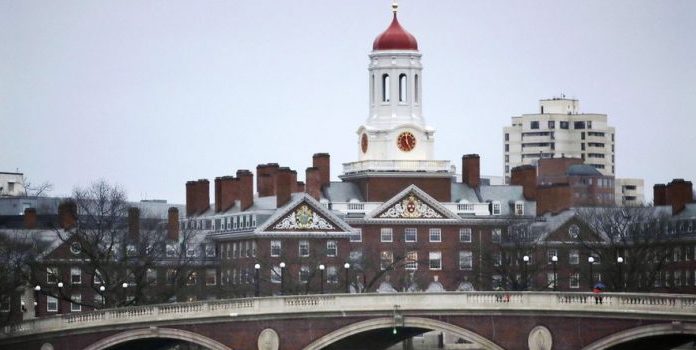The former president of St. John’s College-Annapolis has joined with disaffected liberals who reject certain far-left theories to establish The University of Austin, an institution that will aim at “The Fearless Pursuit of Truth.”
Pano Kanelos, who led St. John’s College, a liberal arts institution, from 2017 to 2021, wrote in a Substack post that the University of Austin will try to remedy higher education: America’s “most fractured institution of all.”
“We can’t wait for universities to fix themselves,” Kanelos said. “So we’re stating a new one.”
Kanelos claimed that America’s elite universities, like Yale, Harvard, and Stanford, have failed to live up to their mottos—”Light and Truth,” “Truth,” and “The wind of freedom blows”—because ideologues have embraced intolerant “illiberalism” over “freedom of inquiry and civil discourse.”
Numerous professors at other universities have joined Kanelos’s project, including many famous “red-pilled” liberals.
We got sick of complaining about how broken higher education is. So we decided to do something about it.
Announcing a new university dedicated to the fearless pursuit of truth: @uaustinorg:https://t.co/ZqRLXcF2n0— Bari Weiss (@bariweiss) November 8, 2021
The most famous in conservative circles tend to be Steven Pinker, Deirdre McCloskey, Leon Kass, Jonathan Haidt, Heather Heying, Niall Ferguson, and Arthur Brooks. This group in general holds left-wing to far-left social views and moderate to right-wing opinions about government and economics.
They have united in opposition to intolerance regarding COVID-19, critical race theory, anti-white and anti-Asian affirmative action, climate alarmism, and transgender ideology.
Here’s a full list of the university’s Board of Advisors.
In an interview with the Daily Caller, Kanelos said that The University of Austin received more than 1,000 calls from professors who expressed interest in the new institution.
University of Austin has not yet received accreditation, does not grant four-year undergraduate degrees, and does not have a physical campus, though it has established an office.
Kanelos plans to create an in-person university with 3,000-4,000 students that is “fiercely independent — financially, intellectually, and politically”—by 2024.
“We don’t care about someone’s politics, we just want the sharpest,” he said. “If you build [the university] in a way that protects and preserves the fundamental principles of open inquiry and civil discourse, you will draw people into coming here not because of their politics, but in spite of whatever politics they had.”

